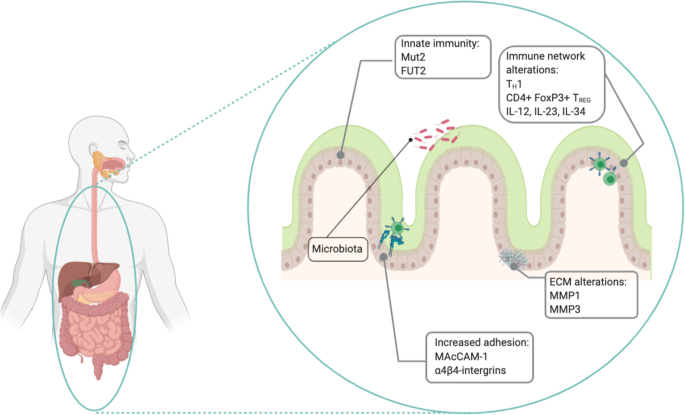
Pathophysiology of Crohn's disease inflammation and recurrence
4.5 (432) In stock

4.5 (432) In stock
Chron’s Disease is a chronic inflammatory intestinal disease, first described at the beginning of the last century. The disease is characterized by the alternation of periods of flares and remissions influenced by a complex pathogenesis in which inflammation plays a key role. Crohn’s disease evolution is mediated by a complex alteration of the inflammatory response which is characterized by alterations of the innate immunity of the intestinal mucosa barrier together with a remodeling of the extracellular matrix through the expression of metalloproteins and increased adhesion molecules expression, such as MAcCAM-1. This reshaped microenvironment enhances leucocytes migration in the sites of inflammation, promoting a TH1 response, through the production of cytokines such as IL-12 and TNF-α. IL-12 itself and IL-23 have been targeted for the medical treatment of CD. Giving the limited success of medical therapies, the treatment of the disease is invariably surgical. This review will highlight the role of inflammation in CD and describe the surgical approaches for the prevention of the almost inevitable recurrence.

Identification of hub genes and key pathways in pediatric Crohn's disease using next generation sequencing and bioinformatics analysis

Identification of hub genes and key pathways in pediatric Crohn's disease using next generation sequencing and bioinformatics analysis
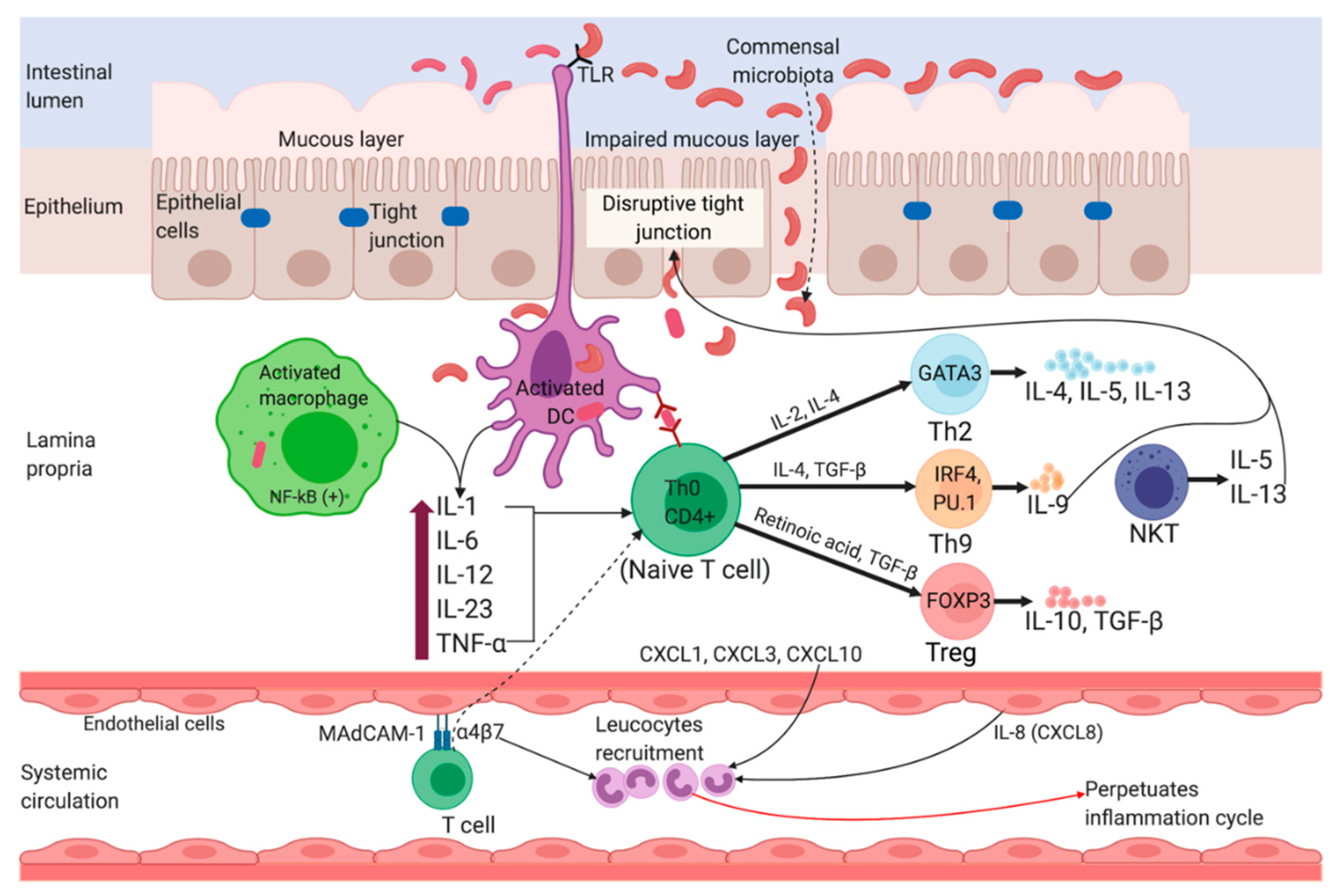
JCM, Free Full-Text
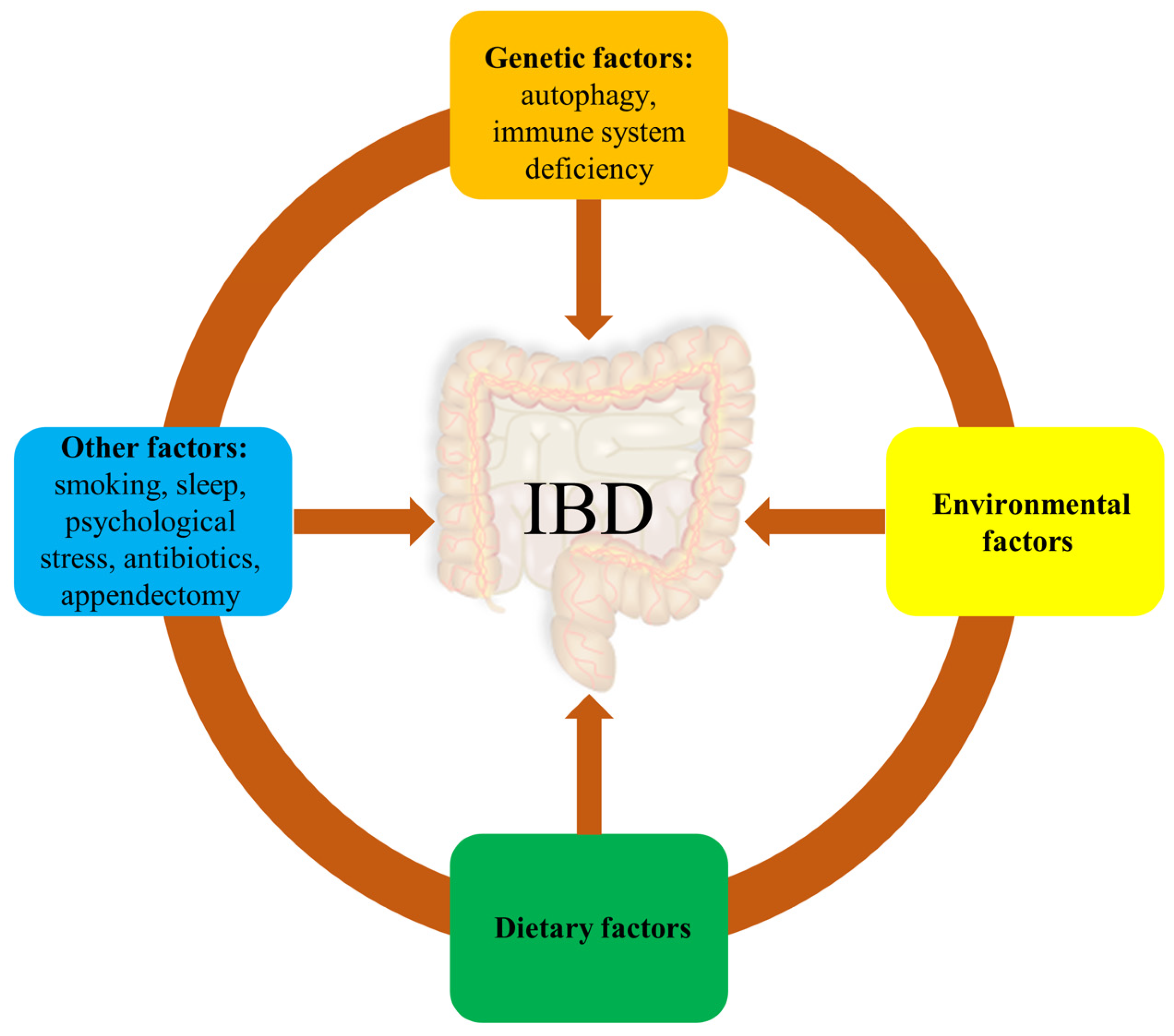
Nutrients, Free Full-Text

Crohn Disease: Update on Diagnosis, Pathophysiology, and Treatment
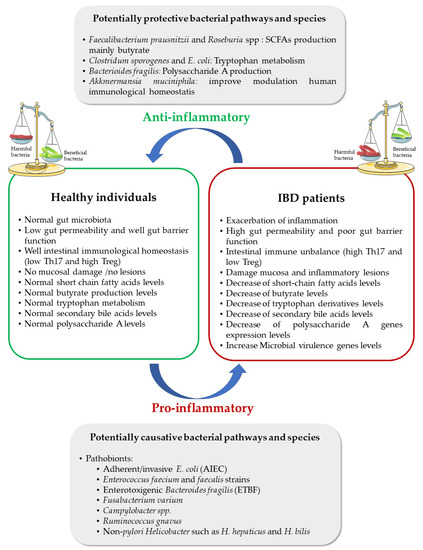
Nanomaterials, Free Full-Text
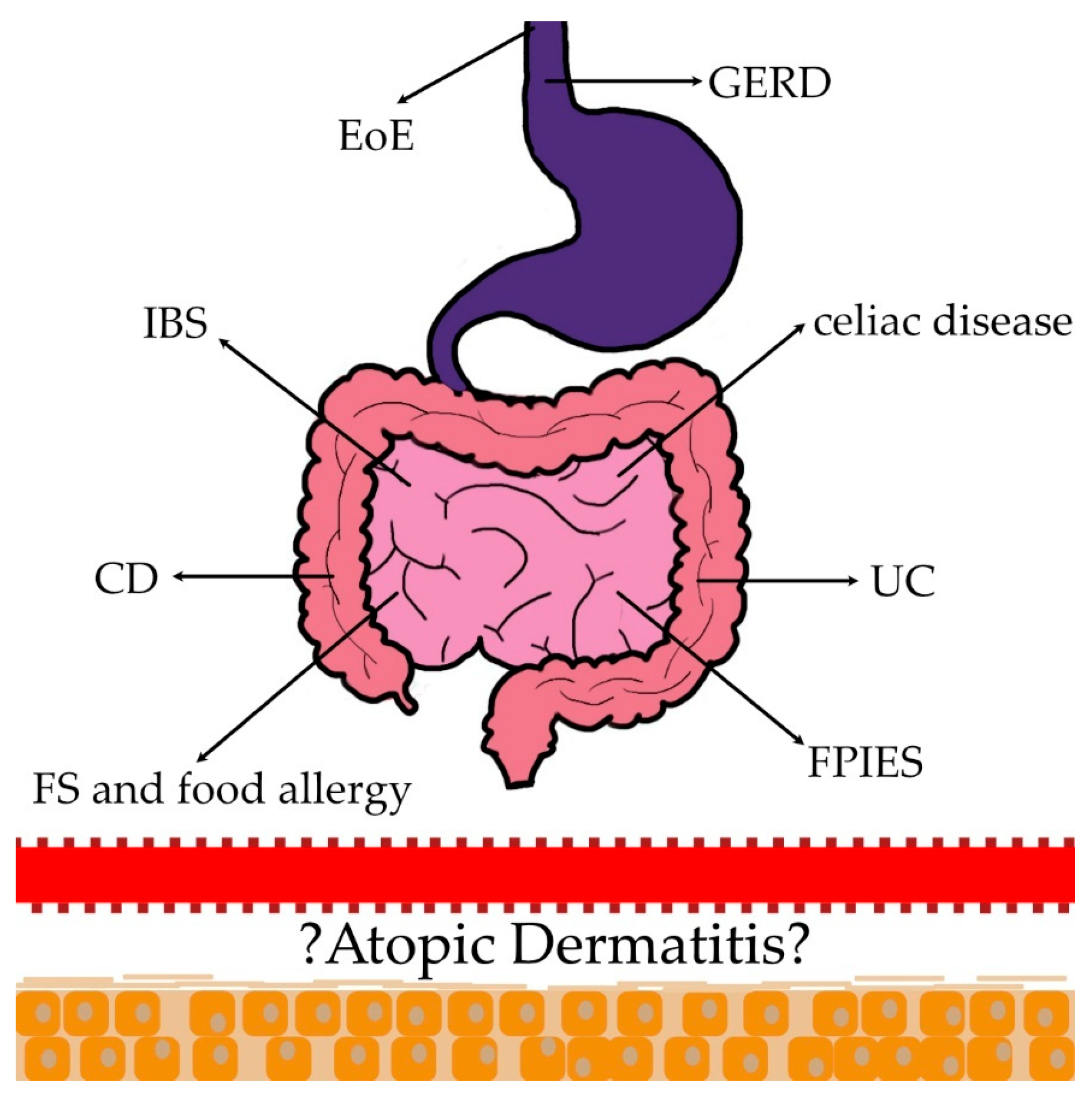
IJMS, Free Full-Text

Characteristics and what to know about Crohn's disease poop
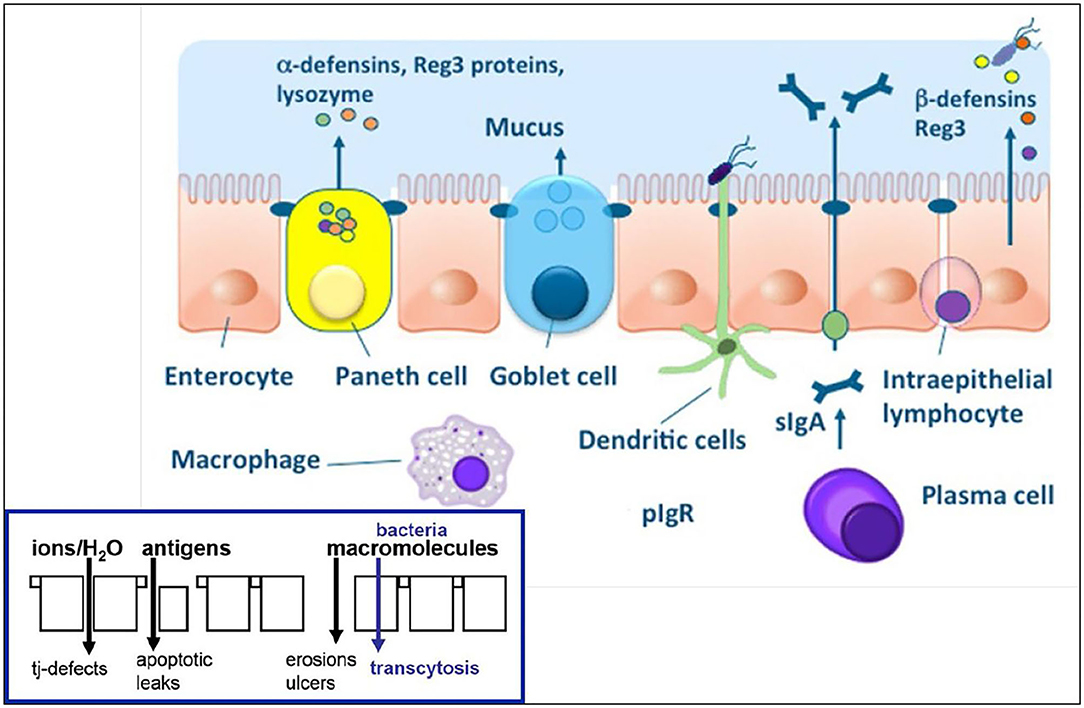
Frontiers Rules of Engagement: Epithelial-Microbe Interactions and Inflammatory Bowel Disease
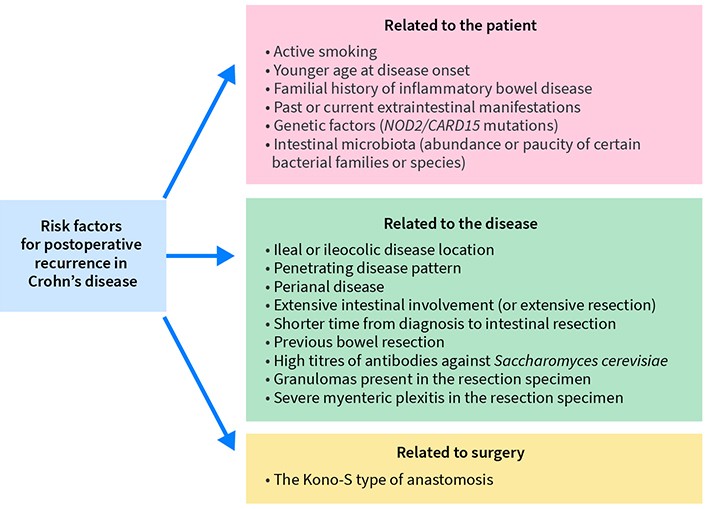
Mistakes in the management of postoperative Crohn's disease and how to avoid them
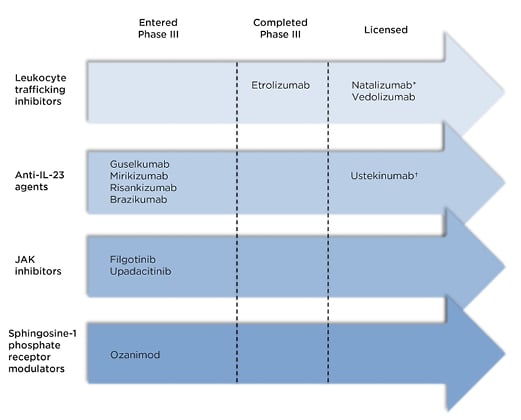
Emerging Treatments for Crohn's Disease - European Medical Journal
Pathophysiology in Crohn's disease. The uptake of luminal microflora